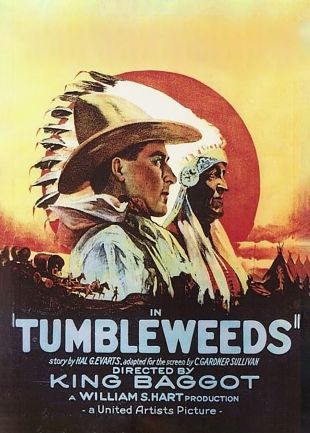
This is William S. Hart's final contribution to the Western genre he had helped define a decade earlier. Hart plays a "tumbleweed," one of the last of the roaming cowboys whose way of life is about to disappear with the arrival of empire building settlers. It is mere days before the legendary Oklahoma land rush, when the fertile Cherokee Strip will be taken over by farmers and shop keepers. Later, due to his infatuation with lovely Barbara Bedford, Hart is more than ready to stake his claim, both for the land and the lady. Despite the potential inherit in the material, Tumbleweeds is not the epic story telling of empire building Hart may have envisioned. Nevertheless, Hart's version of the land rush, some of it filmed at the Universal back lot, remains second to none in scope and excitement and certainly influenced the many versions to come, including the award-winning Cimarron. Since the director, King Baggot, never did anything like this, before or after, the credit most likely belongs with Hart himself. As always, Hart goes for realism in both setting and characterization. His aging cowpoke is no one-dimensional hero and is not above breaking the law to get what he wants. The supporting cast is equally well appointed, with Lucien Littlefield solid as the comic sidekick, Richard R. Neill and J. Gordon Russell properly menacing as the villainous "sooners," and Barbara Bedford, mature and beautiful, as the heroine. Tumbleweeds failed to deliver the hoped-for business and Hart, distressed at having to compete with showmen like Tom Mix and Hoot Gibson, chose to retire. He was back on the screen in a filmed prologue to the 1939 re-release of Tumbleweeds, however, proving perhaps only that talkies were not this rather bombastic Victorian stage actor's true métier.
